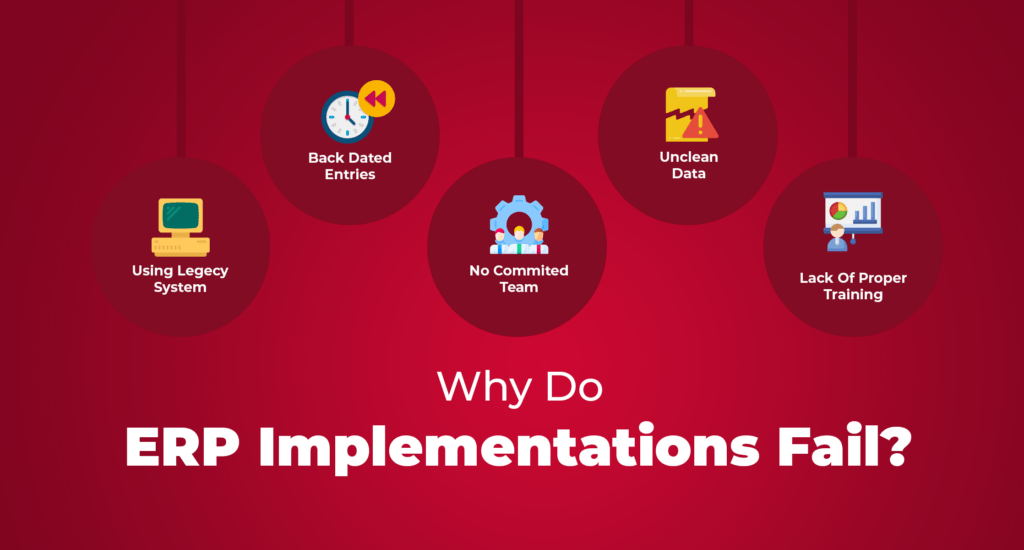
There are many reasons why Cloud ERP Software implementations fail. One of the main reasons would be that the ERP solution is not a proper fit for the requirements / industry. However the top 5 reasons which do not come up very obviously are elaborated below:
To get over this, the ERP Software will never work like the legacy system. There will be workaround solutions to some of your requirements. As long as the requirements are taken care of and it does not increase the workload of the people, such workarounds should be accepted. The reports available in the ERP may not match your formats exactly. You need to see if the relevant data is available in the reports. Many times, legacy systems may have reports with information that is not of any relevance with an ERP solution in place.
Without a dedicated and committed team that is closely monitoring the implementation and ensuring prompt responses to any query resolution, a Cloud ERP implementation can get into unforeseen delays. There must be a single point of contact who can get the required information promptly.
patchy, unclean data is a sure path to failure. Ensure the data is proper. You will need to define masters for various entities, items, etc. This data must be proper with accurate information as this is used further in the system. Being casual about such definitions creates issues during the later stages of the implementation. It is often not possible to change the critical values in the masters once the implementation has started. Besides this opening balances will be required for items, debtors, creditors, balance sheets, etc. These too must be verified and ensured to be correct before uploading into the ERP system. These amounts define how your balances are worked out in the new system. Any discrepancies in the opening balances will create discrepancies within the system.
insufficient training will result in improper data entry. Plan proper training sessions that are relevant to your needs and individual users. This will reduce data entry errors.
One of the most common reasons for Cloud ERP implementations to fail is wanting to do back-dated entries. Do not expect that if you start the implementation in between a financial year, you will get all your required annual reports from one system. Backdated entries always have a backlog. You need a lot of extra manpower to ensure the completion of back-dated entries in time. Most organizations may not have such spare manpower available. Ensure these points are planned for in detail before you jump into an ERP implementation. No matter how good the solution is, these reasons may keep you from having a successful ERP implementation.